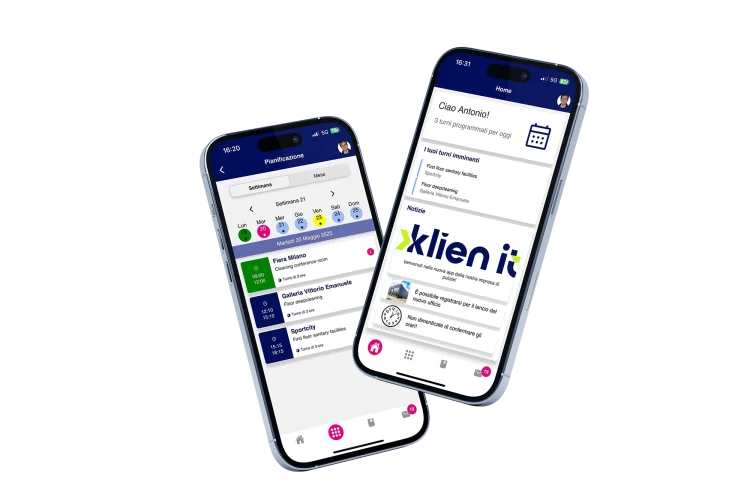In the cleaning industry, planning is everything. Whether it’s scheduling shifts, assigning tasks, or coordinating teams across multiple sites, a well-organized plan keeps operations smooth and clients happy. But when planning falls short, the impact can be surprisingly expensive.
From missed shifts to duplicate bookings and wasted travel time, inefficient planning drains both money and morale. Many cleaning companies underestimate just how much these small inefficiencies add up over a year, often costing thousands in lost time, higher turnover, and reduced client satisfaction.
When planning goes wrong
Every cleaning business faces daily scheduling challenges. Staff call in sick, clients change their requirements, or new contracts appear at short notice. Without a clear system in place, managers spend hours manually adjusting rosters, making phone calls, or updating spreadsheets.
It may seem like a normal part of the job, but this constant juggling comes at a cost. Each hour spent firefighting could have been used more productively.
And that’s just the beginning. When shifts aren’t planned accurately, cleaners might arrive late, be sent to the wrong site, or even overlap with others unnecessarily. These mix-ups lead to missed deadlines, overtime costs, and dissatisfied customers.
The hidden costs of poor planning
Inefficient planning affects much more than just schedules. It creates a ripple effect across the entire business:
- Increased labour costs: double-booked or last-minute shifts often mean paying for overtime or emergency cover.
- Lower productivity: cleaners waste time traveling between sites or waiting for instructions.
- Higher turnover: staff get frustrated with unclear communication and unpredictable workloads.
- Client dissatisfaction: missed appointments and inconsistent service can lead to complaints or lost contracts.
- Administrative overload: managers spend hours manually fixing problems that better planning could have prevented.
Even small inefficiencies can add up quickly. For example, losing just 15 minutes per cleaner per day due to poor coordination can amount to hundreds of lost hours over a year.
How smart planning tools make a difference
The good news is that these problems are preventable. Cleaning companies that use digital planning tools can significantly reduce wasted time and costs.
Here’s how smarter planning improves efficiency and communication:
- Automated scheduling: managers can create and adjust shifts in seconds, with instant updates sent to staff.
- Real-time visibility: if someone calls in sick, available replacements can be notified immediately.
- Integrated communication: updates, shift changes, and reminders are all shared in one central place.
- Accurate reporting: digital tools track hours worked and service completion, reducing errors and disputes.
The human impact
Planning isn’t just about logistics, it’s about people. Poor scheduling puts unnecessary pressure on cleaners who often feel overworked or unappreciated when plans change suddenly. Meanwhile, managers become overwhelmed trying to manage chaos instead of leading their teams.
A smarter investment
Inefficient planning is one of the most overlooked costs in the cleaning industry. It doesn’t show up as a single line on the balance sheet, but its impact is felt in every part of the business.
By switching to smart planning tools and clear communication systems, cleaning companies can turn wasted time into profit, reduce stress across the team, and strengthen relationships with clients.



